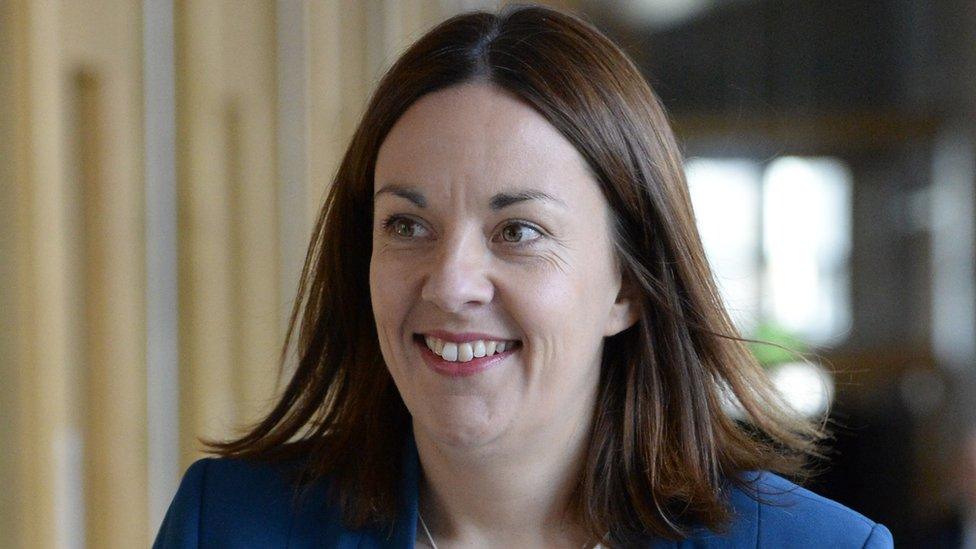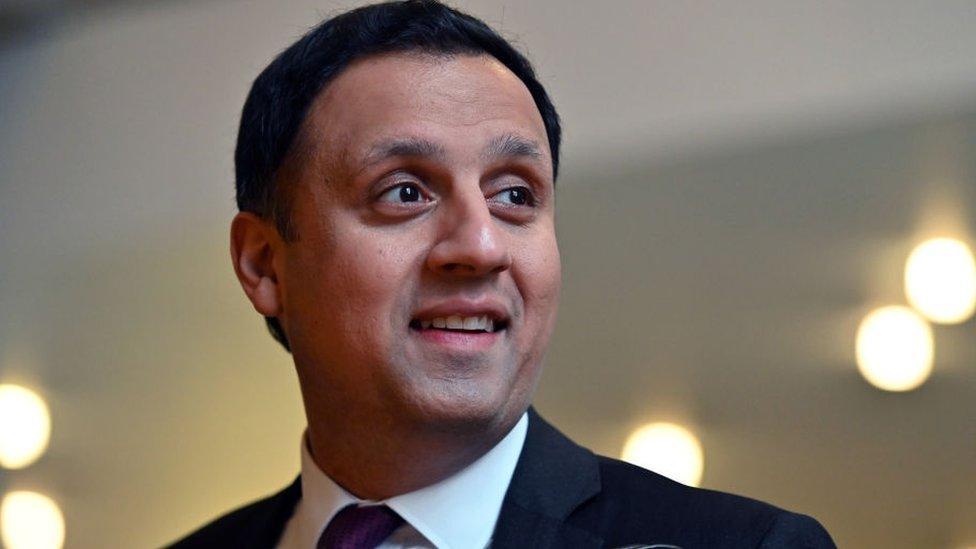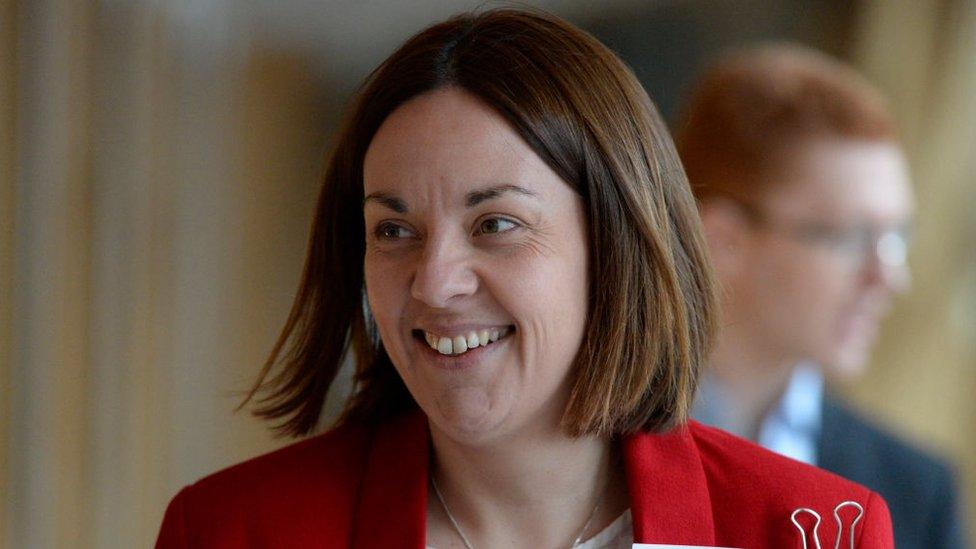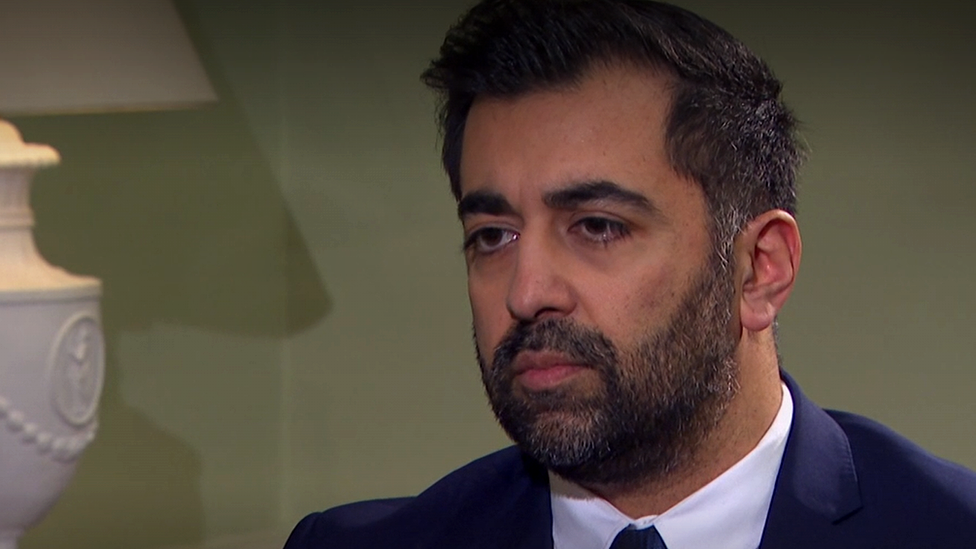Former Scottish Labour leader Kezia Dugdale admits voting SNP
- Published

A former leader of the Labour Party in Scotland has admitted voting SNP.
Kezia Dugdale told a new BBC documentary she was "so mad about Brexit" she backed the party at the European Parliament election in 2019.
She said she had voted Labour at every election since.
Ms Dugdale was still a member of the Scottish Parliament at the time. She had quit as leader two years previously and had also announced she was quitting Holyrood.
But she did not formally stand down until two months after the European Parliament vote, which saw Labour lose both its seats in Scotland and poll at just 9%.
Ms Dugdale was speaking to a Radio 4 documentary exploring the fall of Labour in Scotland and its hopes for a major comeback at the next general election.
"I voted SNP once in my life and that was in the European Union elections immediately after Brexit, where I was so mad about Brexit," she said.
"I felt I could vote for the SNP in that European Union election, because that in no way could be construed as a vote for independence."
She added: "I voted Labour in every election since then."
But her admission is a sign of how much trouble Labour faced in Scotland over several years following the independence referendum.
The programme - Labour's Scottish Challenge - charts the collapse in the party's vote at the general election in 2015, when it was almost wiped out in Scotland. It lost 43 seats and returned just one MP from Scotland.
Ms Dugdale became party leader after that election and told the programme the challenges felt "existential" in the immediate aftermath.
She led the party until August 2017, when she resigned to "pass on the baton".
Recent polls have suggested Labour could make a significant comeback in Scotland.
The programme reveals Labour believes 28 constituencies north of the border are "in play" - political shorthand for potentially winnable.
It will not take them all, but it is a sign of how Labour thinks its position in Scotland has changed fundamentally. Some argue they can beat the SNP at the general election.
Anas Sarwar - who has been leader of Scottish Labour since 2021 - told the programme: "People talk a lot about tipping points in the polls.
"I think the tipping point in Scotland is around 35% - if we get around 35% in the polls then we are in competition to beat the SNP.
"If I said that to anybody two-and-a-bit years ago, they would have thought I was deluded. But I have always believed that's what we can do."

Anas Sarwar became leader of Scottish Labour in 2021
Labour's average polling at the moment sits at around 34%, according to elections expert Sir John Curtice.
Despite the SNP's challenges, Scotland's First Minister Humza Yousaf, told the programme he was optimistic about the general election.
"I don't fear a general election at all. I see it's a huge opportunity," he said.
"There's no getting away from the fact that 2023 was a difficult year.
"I'm not going to treat you or your listeners as fools… but the general election presents an opportunity because ultimately a general election will be and should be a battle of ideas. And I think the SNP is strongest when it's talking about policy."
Conservative peer Ruth Davidson, who used to lead the Scottish Conservatives, told the programme Labour would benefit from a sense of 2024 being a "change" election.
But she also said the Conservatives could increase their seat tally in Scotland, despite poll woes across the UK.
"They expect to hold what they have, give or take boundary changes that exist," she said.
"And they are targeting to try and put on a couple of seats across the country - and it's realistic."
Related topics
- Published10 October 2019

- Published21 January 2024
